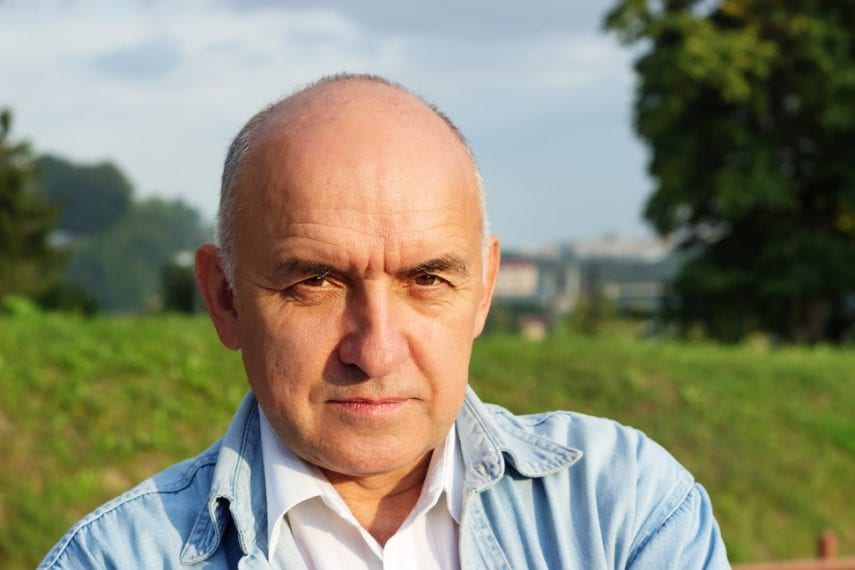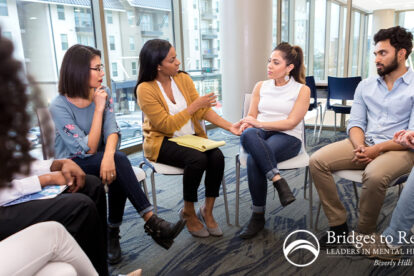What Causes Social Phobia? Understanding and Addressing the Source of Your Fear

What causes social phobia? Although there might not be an answer set in stone, treatment programs can set the stage for recovery using adaptive, multi-faceted solutions that harness the best parts of medication and holistic treatment modalities. By learning and growing through therapy, you will recognize the potential for change in your future and begin to break free from the fear that controls your life.
Clinical psychologist Steven Hayes once said that “if you always do what you’ve always done, you’ll always get what you’ve always got.” For people struggling with anxiety disorders like social phobia, to call this sort of advice “frustrating” is probably an understatement.
You’ve most likely had people tell you to just “get over it” more times than you can count. You may even tell yourself the same thing every time you’re about to enter a meeting or situation that sparks your nerves, only to find yourself overcome with fear time and time again.
And yet, while an anxiety disorder isn’t something you can get over all at once simply by telling yourself to do so, it’s also true that you can change your approach to coping with it—and, in turn, begin to overcome it. Understanding the causes of your social phobia, and where your fears are coming from, can play a big part in facilitating your healing journey.
What Causes Social Phobia?
Like many mental health issues, the exact causes of social phobia are not clearly defined. Everything from inherited genetics and overactivity in the amygdala (the brain structure that regulates fear) to learned behaviors have been hypothesized to contribute to social phobia in some way. Although social phobia shares many similarities to social anxiety disorder, including the physical symptoms that mirror those experienced during panic attacks (dizziness, sweating, blushing, et cetera.), it is distinct in that it primarily stems from the fears and insecurities that arise during a public performance. This can be anything from signing your name at the grocery store to using public restrooms.
The two challenges aren’t mutually exclusive, either. In fact, they overlap in many ways, and it’s possible to suffer from both social phobia and social anxiety disorder. Regardless, the most important similarity between the two lies in the way that both can successfully be treated—within a residential treatment setting that provides a calm, accepting environment to create new thought processes and behaviors. These ultimately pave the way for a new path where fear does not dictate the course of your life.
Setting the Stage for Recovery
Comprehensive psychological testing is the first thing you will experience in a treatment center, and it sets the stage for the rest of your recovery. It will help your team create a personalized recovery plan that adapts and grows as you do, but first and foremost it will help medical professionals determine if medication is necessary and, if so, which are most suitable for you.
Common medications for social phobia include:
- Selective Serotonin Reuptake Inhibitors (SSRIs)
- Beta-blockers
- Benzodiazepines
SSRIs are commonly used for their effectiveness in reducing stress, although some people respond just as well to supplements of 5-HTP—serotonin’s precursor. Then you have the beta-blockers, which block adrenaline and can stop the terrifying physical symptoms of social phobia that stem from heightened arousal, and benzodiazepines that act by completely eliminating both physical and mental symptoms at the expensive of a heightened risk of dependence and subsequent withdrawal symptoms.
Which is the right one? There is no medication that falls into such a category, and the variation in their effectiveness depends on your unique requirements. All of the medications above can be extremely helpful for some, while for others they may be ineffective or even detrimental to the healing process, depending on the situation. This is why a complete psychological evaluation and accurate diagnosis, along with a medical team and program that can adapt and evolve with your needs as they change over time, is crucial for your recovery.
Begin Your Recovery Journey.
877-727-4343Learning and Growing Through Therapy
The emotional and behavior patterns that make it feel impossible to simply try new things or change the way you look at yourself are best changed through therapy. Medication is still a great way to augment these therapies, but learning and growing through treatment modalities like Cognitive Behavioral Therapy (CBT) is believed to be more effective than medications and create lasting effects. It’s these kinds of learning experiences that are necessary to break free from the patterns of thought and behavior your phobia drives and create new ones.
Other forms of therapy that are effective include:
- Psychodynamic therapy, which shines a light on the effects of your interpersonal relationships, life experiences, and the way that your mind processes them. The end goal is harnessing these connections to influence your emotional and behavioral patterns for the better.
- Group therapies help you break down your barriers and connect with other people that have the same fears and struggles as you do. Through this bonding, you can reduce the sense of isolation that so often drives social phobia. Within these therapeutic social circles, you can benefit from an environment defined by acceptance, growth, and positivity.
- Somatic experiencing therapy focuses on restoring balance to your autonomic nervous system, which is responsible for bodily functions that aren’t consciously directed (also driving forces for physical symptoms of social anxiety and phobia) including sweating, increased heart rate, and dizziness. Medications like beta-blockers can curb these symptoms and provide a stepping stone into somatic therapy, where you learn to promote emotional, physical, and behavioral self-regulation and, potentially, eliminate the need for medications altogether.
Recognizing the Potential for Change
Living with social phobia makes it hard to see outside of the tight personal bubble that your social phobia has created for you. A comprehensive treatment program can give you the tools necessary to break out of this bubble and begin exploring your own personal potential for growth and healing. Although your path to recovery may not always be a smooth one, along the way you will learn to prevent your social phobia from turning small stumbles into seemingly impassable roadblocks. Instead, you will come to see such moments as learning opportunities and as stepping stones that will help you make your way toward a future that is no longer defined by your fear.
Bridges to Recovery offers comprehensive treatment for people struggling with mental health disorders as well as process addictions. Contact us to learn more about our renowned Los Angeles programs and how we can help you or your loved one start on the path to healing.






